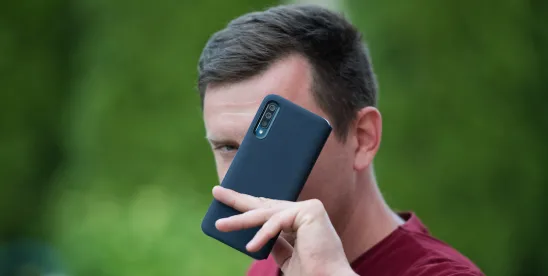As we previously suggested, the NLRB’s adoption of the Boeing standard for determining the lawfulness of employer’s workplace rules, policies and handbook provisions has provided significant fodder for interesting cases.
The Board has struggled for years with the concept that certain commonsense employer business policies can be unlawful. It is difficult to draw bright-line rules from such decisions due to the varied workplaces – even more so now during the COVID-19 pandemic, where workplaces are transforming and new safety guidelines are issued. What may present a legitimate workplace safety concern in one setting, may be deemed pretext in another.
Just a few months ago, the Board found that an employer’s policy restricting cell phone use while driving was lawful under Boeing due to the substantial safety concerns underlying the policy for commercial drivers. Now, in a case involving a beverage manufacturer, the Board addressed a company-policy restricting employees from using their personal cell phones, and other personal items, on the processing floor and at their work stations, and a facility-specific policy that prohibited personal items (including cell phones) in work areas. The Board concluded that these policies were Category 1(b) restrictions under Boeing – meaning there may be a slight impact on the exercise of employees’ Section 7 rights – but that in this situation, the impact was outweighed by the legitimate business justifications for the rules. Cott Beverages Inc., 369 NLRB No. 82 (May 20, 2020).
Background
In Cott Beverages, the employer adopted a policy restricting the use of personal cell phones in prohibited work areas for rank-and-file employees (not management and other employees in leadership positions). The facility-specific policy also prohibited personal items, such as cell phones, clothing, MP3 players, magazines, and other items, from all production and warehouse areas.
Upon remand to the ALJ in light of Boeing, the ALJ found that the employer’s cell phone policy violated Section 8(a)(1) of the Act because the policy restricted employees from using their cell phones for NLRA protected conduct, and the policy could have been drafted more narrowly to promote workplace safety.
Analysis – The Board Reversed the ALJ and Found the Personal Cell Phone Use Restrictions Lawful
Applying the Boeing test, the Board first evaluated the nature and extent of the potential interference the policies could have on employees’ exercise of Section 7 rights. The Board concluded that both the company-wide and the facility-specific policies could have a potential adverse impact on rights guaranteed by the Act, such as restricting employees’ ability to use their cell phones to make audio and video recordings, to communicate with coworkers about terms and conditions of employment, and to take photos of their working conditions.
However, the Board reasoned that the risk of the policies impeding Section 7 rights was relatively slight because the policies prohibited cell phones in working areas only and did not limit employees’ ability to use their cell phones on their own time away from working areas.
Next, the Board evaluated the employer’s asserted business justifications for its cell phone rule. The employer contended that its cell phone policy was necessary to prevent contamination of its beverage production processes and to ensure the safety of its employees. Pursuant to FDA requirements, the policy was established to minimize and eliminate some of the hazards inherent in food production. Additionally, the employer claimed that the restriction on cell phones was necessary in warehouse areas because employees in the warehouse drive forklifts with heavy loads in high-traffic areas.
The Board found the employer’s broad prohibition of personal items, including cell phones, from work areas to be a reasonable and lawful effort to ensure the integrity of its production processes and to comply with FDA requirements for food-production facilities. The Board also agreed with the employer’s contention that, “because of the unique distractions cell phones pose, a blanket prohibition on usage in work areas is a reasonable restriction in order to reduce the risks of product contamination, slowed response times, and on-the-job accidents.”
The Board rejected the ALJ’s finding that the employer’s cell phone policy was unlawful because it could have been more narrowly drafted on the grounds that such a requirement is not grounded in the precedent. After determining that the cell phone policy has some, although slight, impact on employees’ Section 7 rights, “the pertinent question becomes whether the impact (or overbreadth) is outweighed by the [employer’s] business justifications for the rule, not whether the [employer] could have drafted a narrower rule.” (Emphasis added.)
Considering the employer’s justifications, the Board held that the employer’s legitimate interests in promoting workplace safety and the integrity of its food-production processes outweighed the slight risk that the employer’s cell phone policy might interfere with protected employee conduct. Because there exists a slight risk of interference with Section 7 rights, the Board classified the employer’s cell phone rule as a Boeing Category 1(b).
Takeaways
This decision confirms that facially neutral rules designed and tailored to promote workplace safety likely will be upheld as lawful under the Boeing standard— even where there is a possibility that the rule will interfere with employees’ Section 7 rights. In Argos and Cott Beverages, the Board upheld similar cell phone bans in two different workplace scenarios where safety was a legitimate justification for the policy. Given the increased workplace safety regulations imposed throughout the country in light of COVID-19, the Board’s recent guidance should be comforting to employers that the Board may be inclined to find facially-neutral workplace safety rules that may restrict employees’ use of personal items in the workplace lawful under Boeing – particularly given the undisputed safety concerns during the pandemic – even if there is an impact on Section 7 rights.
It is also noteworthy that the policies were limited to cell phone use in work areas where the safety concern was most relevant and did not restrict cell phone use outside of working areas. While employers can feel more confident in their ability to limit or prohibit cell phone use in designated work areas as a safety precaution, employers can better position themselves by crafting policies in a way that limit the potential interference with Section 7 rights where feasible. As always, the asserted legality of a written policy is always bolstered by the ability of the employer to articulate a business justification, such as compliance with federal food safety guidelines.
Additionally, despite both rules being upheld as lawful, the rules in Argos and in Cott Beverages were classified differently by the Board, in part because of differences in the way the policies were drafted. The policy in Argos was Category 1(a) – presumptively lawful – because it made clear that the purpose for the rule was workplace safety, while the policy in Cott Beverages was Category 1(b) because it did not include language that the basis for no cell phones or personal items in the work place was due to safety concerns. As such, employees were less likely to interpret the rule as protective in nature. This provides helpful drafting guidance for employers to make apparent if a purpose of the policy is for safety concerns, which would presumably short-circuit the analysis before the Board and lead to a quicker lawful finding.





 />i
/>i

